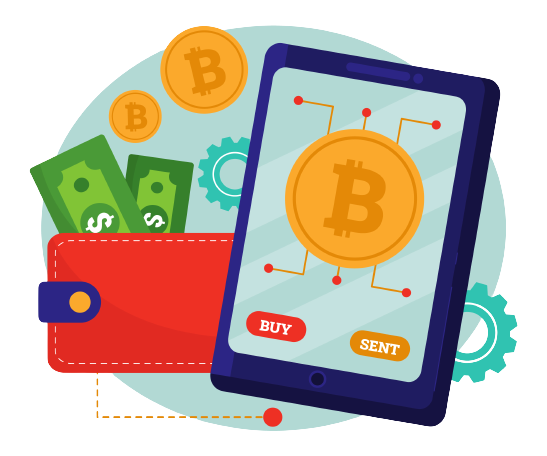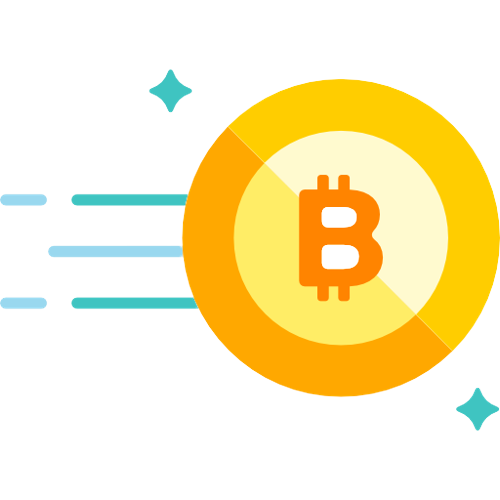
The emergence of Bitcoin ushered in a new paradigm for money and finance powered by decentralization and cryptography. As cryptocurrencies gain mainstream traction, understanding how to leverage secure digital wallets becomes crucial to unlocking the opportunities of blockchain-based finance.
In this guide, we will demystify Bitcoin wallets and go beyond to examine the broader decentralization revolution reshaping finance. We will cover essential wallet functionality, types, securing strategies, and real-world usage. By exploring promising developments like DeFi, NFTs, and CBDCs, you will gain perspective on the profound implications of digitized programmable money and user-controlled value.
Let’s get started on building clarity around this gateway to the world of Web3 and digital asset empowerment.
Demystifying Bitcoin Wallets
Bitcoin wallets are software programs or devices that allow you to securely interact with the Bitcoin network. They manage the keys that govern access to your cryptocurrency holdings. Here are some key facts:
-Wallets enable you to receive, store, and send Bitcoin as well as monitor balances and transactions.
-They utilize specialized cryptographic keys – a public key and a private key. The public key displays your wallet address, while the private key proves ownership and authorizes transactions.
-Your Bitcoin units are not stored in the wallet. They exist on the public blockchain ledger. The wallet securely contains your keys controlling those holdings.
-Many wallets support other cryptocurrencies besides Bitcoin, like Ethereum, Litecoin, etc. Some focus exclusively on Bitcoin.
-Wallets remove counterparty and intermediation risks by allowing self-custody of crypto holdings under your control.
Understanding these technical nuances helps grasp the role and value of Bitcoin wallets in the broader decentralized finance landscape. Now let’s examine the main types available.
Types of Bitcoin Wallets
There are diverse options when it comes to Bitcoin wallet interfaces, each with pros and cons:
Hardware Wallets: These are physical devices, typically resembling USB drives, that generate and contain your private keys offline away from internet connectivity and associated risks. Leading options include Trezor and Ledger.
Advantages: Maximum security, offline private keys, support many cryptocurrencies Disadvantages: Purchase costs, must physically secure device
Mobile Wallets: These reside on smartphones as apps and enable convenient everyday transactions on the go. Popular picks include Edge, BRD, and Mycelium.
Advantages: Convenient, easy everyday usage, integrated QR codes Disadvantages: Keys stored on an internet-connected device, smaller screens
Desktop Wallets: Downloaded software programs on laptops and PCs like Bitamp, Exodus, Atomic, and Wasabi. Provide convenient access along with more features.
Advantages: Accessible, ability to store and transact with many cryptocurrencies Disadvantages: Private keys can be stolen by malware if the device is compromised
Web/Online Wallets: Browser-based wallets like Bitamp, Coinbase Wallet, Blockchain.com, and Robinhood where keys are stored by providers on the cloud. Beginner-friendly but risky.
Advantages: Convenient access globally, integrated services like exchange trading Disadvantages: Entrusting keys to third brings security risks
Paper Wallets Keys printed or handwritten on paper provide a highly secure way to store Bitcoin offline long term. They are not designed for everyday use.
Advantages: Keys exist entirely offline away from digital threats Disadvantages: No convenience features or recovery options if the paper is lost
The optimal wallet depends on your priorities across security, convenience, and functionality. As best practice, maximize control of your private keys. Now let’s look at essential wallet features beyond just storage.
Key Features and Functionality
Modern Bitcoin wallets offer an array of features:

Private key custody – Full control over your private keys means true financial sovereignty. Avoid custodial wallets where you don’t exclusively control keys.
Transaction tools – Useful functionality to build, send, and request transactions while selecting fees for faster processing or lower costs.
Multiple currency support – Leading wallets allow you to store numerous digital assets like Bitcoin, Ethereum, stablecoins, etc. under one interface.
Backup and restore – Backup wallet data like seed phrases securely to enable recovery of holdings if devices containing keys are lost or damaged.
User experience – An intuitive user interface provides a great experience, especially for newer crypto users.
Security features – Password protection, 2FA, multi-sig, and other measures enhance security against theft, scams, and user errors.
Portfolio tracking – Wallets automatically track the value of holdings across currencies and the performance of your broader portfolio.
Display customization – Some wallets allow users to customize dashboard displays with preferred themes, widgets, etc. to personalize the experience.
The right blend of features tailored to your needs and level of expertise is key in selecting a suitable Bitcoin wallet.
Securing Your Bitcoin Wallets
Since your wallet contains the keys to your digital assets, applying sound security practices is non-negotiable:
Backup seed phrase – Carefully store the 12-24 word recovery phrase provided when initializing your wallet. This enables the restoration of holdings if you lose access.
Hardware wallets – These isolate keys offline away from internet connectivity risks. But you must still back up the recovery phrase.
Multisig – Requires multiple sign-offs before large transactions are authorized. This prevents unilateral control by a single party.
Minimal exposure online – Avoid entering your private key on websites. Use wallets offline wherever possible.
Updated software – Always run the latest software version and firmware updates to get security fixes as threats evolve.
Strong passwords – Use long randomized passwords for wallet access. Password managers help create and store robust passwords.
Caution with public WiFi – When using web wallets on the go, only access through trusted networks to prevent snooping. Use a VPN.
Diversify storage – Avoid storing all holdings in one wallet. Spread across multiple secure wallets and locations.
Applying prudence across device security, private key management, and general diligence ensures your Bitcoin is well protected from likely threats.
Transacting with Your Bitcoin Wallet
Once secure practices are in place, transacting Bitcoin simply involves:
Receiving Bitcoin
-Share your public wallet address where you want to receive the funds. Confirm there are no typos.
-Each transaction generates a new address for improved privacy. All link back to your wallet.
-Check that the payment sender includes sufficient miner fees for faster processing times.
-The balance should be reflected in your wallet once the transfer completes network confirmations.
Sending Bitcoin
-Paste the recipient’s wallet address carefully. Double and triple-check accuracy.
-Enter the amount to send. Application may subtract miner fees from this amount.
-Review details thoroughly before confirming the transfer. Transactions are irreversible once broadcast!
-Depending on wallet settings, you may need to provide passwords, and one-time codes, or use biometric authentication to authorize sends.
-The balance reduces as the transaction processes. Larger transfers may require multiple network confirmations to complete.
With the basics covered, transacting crypto can become as easy as messaging or sending emails!
Tips for Everyday Bitcoin Wallet Usage
Here are some tips for integrating Bitcoin wallets seamlessly into your regular crypto use:
-Explore apps allowing you to spend crypto from wallets for retail goods and services. This increases adoption.
-For buying Bitcoin, consider dollar cost averaging by making periodic small purchases instead of large lumpsum buys to reduce risk from volatility.
-Allocate a portion of your Bitcoin to hold long-term in a secure hardware wallet for savings. Bitcoin has historically seen stellar price appreciation.
-Study up on transaction workflows – how transfers are constructed, confirmed on the blockchain, and settled. Understanding the process builds competency.
-Take advantage of wallet features like address whitelisting and labeling to organize transactions about savings, business, etc.
-Keep learning through social channels and community forums about innovations, privacy enhancements, and new functionalities wallets are building.
Consistent usage builds proficiency and allows you to unlock Bitcoin’s potential as a tool for financial autonomy and freedom.
Beyond Wallets – The Expanding Crypto Economy
While Bitcoin wallets provide the fundamental gateway to this emerging digital financial system, we will conclude by examining promising developments and real-world applications being built on top of the core public blockchain infrastructure across digital assets, decentralized finance (DeFi), and more:

Stablecoins – Cryptocurrencies pegged to real-world assets like the US dollar facilitate reduced volatility in payments, loans, and trading.
NFTs – Non-fungible tokens representing unique ownership of digital items and assets on the blockchain. Applications span digital art, gaming, licensing, etc.
Metaverse and Web3 – Blockchain-based virtual worlds and experiences where crypto integration offers benefits like true ownership of virtual assets.
Smart contracts – Self-executing code on blockchain that enables frictionless escrows, trading, lending, and countless other automated applications without intermediaries.
Tokenization – Securitizing real-world assets like real estate as tokens traded on blockchain promises deeper access and liquidity.
CBDCs – Governments exploring sovereign Central Bank Digital Currencies to modernize finance and supplement declining cash usage.
Global remittances – Transferring cross-border remittance payments using crypto wallets avoids cumbersome intermediaries and fixes broken correspondent banking.
As you educate yourself and engage with these innovations through secure Bitcoin wallets, an entire decentralized digital economy offering unprecedented possibilities unfolds. The solutions developed open the door to a more equitable and empowering financial system for the world.
Conclusion
We have covered critical ground explaining Bitcoin wallets and the gateway they provide to broader decentralized finance. As cryptocurrencies become mainstream, grasping the functionality of digital wallets helps you access emerging economic opportunities.
Beyond just storage, Bitcoin wallets enable you to easily send, receive, and use cryptocurrencies in everyday transactions. By combining convenience, security, and utility, they allow full-fledged participation in the rapidly evolving world of digital assets and blockchain finance. The future promises exciting developments that enhance financial access.
We hope this guide has unlocked clarity on the pivotal role of Bitcoin wallets, the current landscape, and the immense potential of decentralized models ahead. The time to educate yourself is now – understanding wallets provides the keys to propel your crypto finance journey today and into the future.